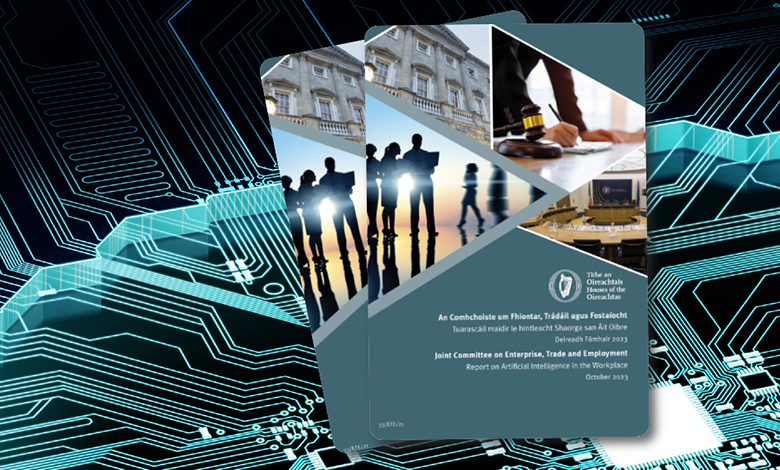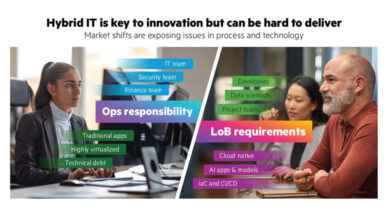AI in the workplace

A permanent joint committee on artificial intelligence (AI) should be established in the Oireachtas, TDs and senators have recommended.
The recommendation to the Minister for Enterprise, Trade and Employment was one of several by the Joint Committee on Enterprise, Trade and Employment contained within a report focused on AI in the workplace.
In addition, the committee has also recommended the establishment of a special committee to examine the broader scope of AI beyond an employment perspective, recognising the far reach of the topic.
In an interview with eolas Magazine, Minister of State with reponsibility for Digital in the Department of Enterprise, Trade and Employment, Dara Calleary TD, stated his belief that the proposals were “worth pursuing” but that the matter was for the Oireachtas to decide.
In the meantime, in January 2024 the AI Advisory Council, designed to provide independent expert advice to government on artificial intelligence policy, sat for the first time.
Almost half the labour force is expected to be impacted by changes to their jobs due to automation by 2040, according to an OECD report on Wellbeing in the Digital Age published in 2019. The scope of the committee’s report was particularly focused on the finding that up to 14 per cent of all jobs are at high risk of being lost due to automation, with another 32 per cent at risk of significant change over the next 10 to 20 years.
Alongside the recommendation to establish a Joint Oireachtas Committee on AI, the Committee’s report also called for:
- comprehensive discussions and regulatory measures at a forum level that safeguard both workers’ rights and employer interests on an inclusive basis with all stakeholders;
- enhanced safeguards for digital manipulation to be considered for consumers and workers when transposing the AI Act;
- measures to provide for transparency in the tracking of employee activities, recognising existing concerns around potential abuse of workplace surveillance technology; and
- that the minister revisits the representation on the Department of Enterprise, Trade and Employment’s GovTech forum board. The recommendation references inclusion of an employment perspective, strongly advocating for trade union representation, and other bodies such as legal, regulatory, governmental, and tech industry experts.
The Committee’s work comes in the context of the forthcoming European Union AI Act, which as part of its digital strategy, will seek to regulate AI to ensure better conditions for the development and use of innovative technology.
On 2 February 2024, the EU’s Artificial Intelligence Act was unanimously approved at a meeting of the Council of the European Union (Council of Ministers). The Act must now pass through a European Parliament plenary vote which is expected on either 10 or 11 April 2024.
The Committee’s report focuses on key areas in relation to the workplace, most prominently, surveillance methods deployed by employers, such as webcams, keystroke logging. Highlighting research carried out by the Financial Services Union (FSU), which outlines the importance of research and legislation keeping pace with these changes so society, businesses, and staff can both benefit and the be protected from unforeseen consequences.
“The Committee noted the need to establish clear levels of workplace surveillance, understanding that some regulation might be necessary to prevent excessive intrusion,” the report states.
It adds: “The Committee note[s] from the report that evidence of AI-driven constant monitoring marks a significant shift, where employers can track employee activities without their awareness. The Committee support the need for transparency in this tracking.”
Another theme of the report was around the ‘right to disconnect’, with the Committee noting that “the current pervasive surveillance is generating an ‘always on’ work culture,” which it describes as “problematic”.
“The Committee is concerned that monitoring practices being undertaken might not necessarily correlate with increased productivity and acknowledges there could be various reasons behind employers’ surveillance practices,” it says.





